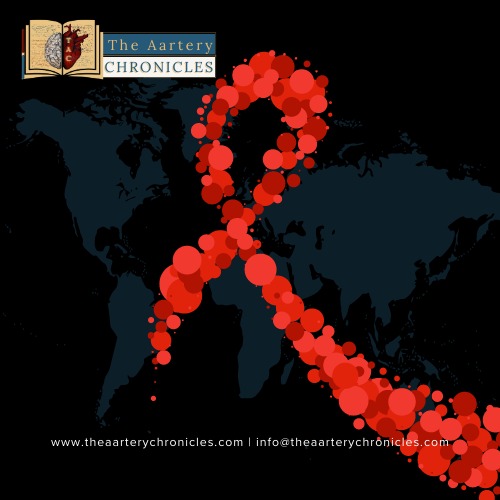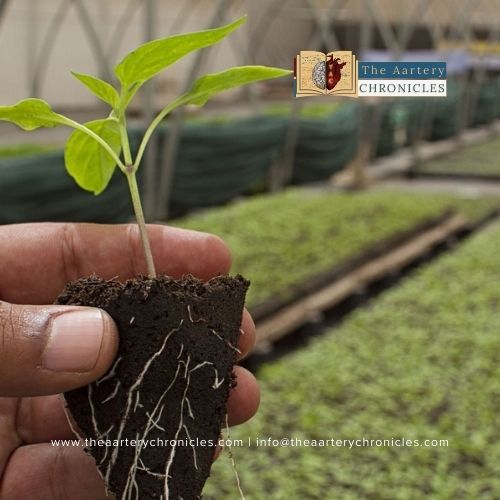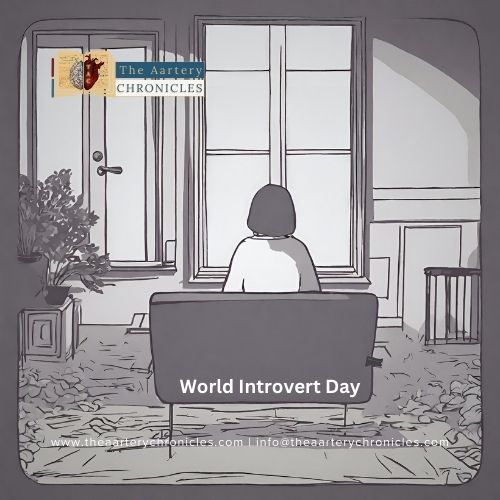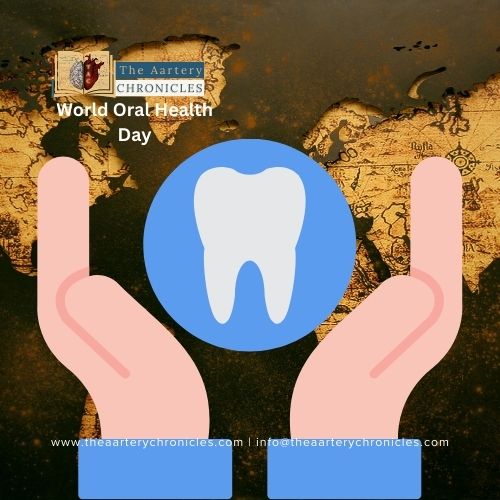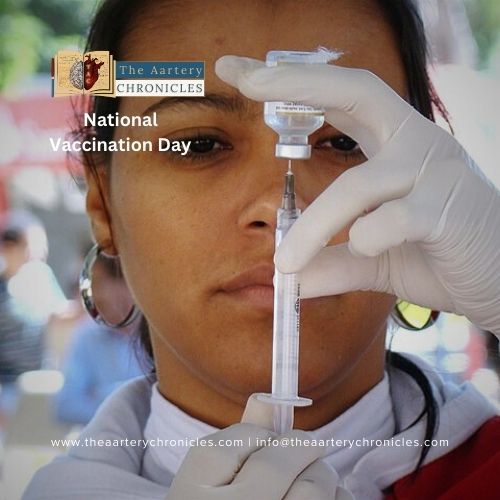
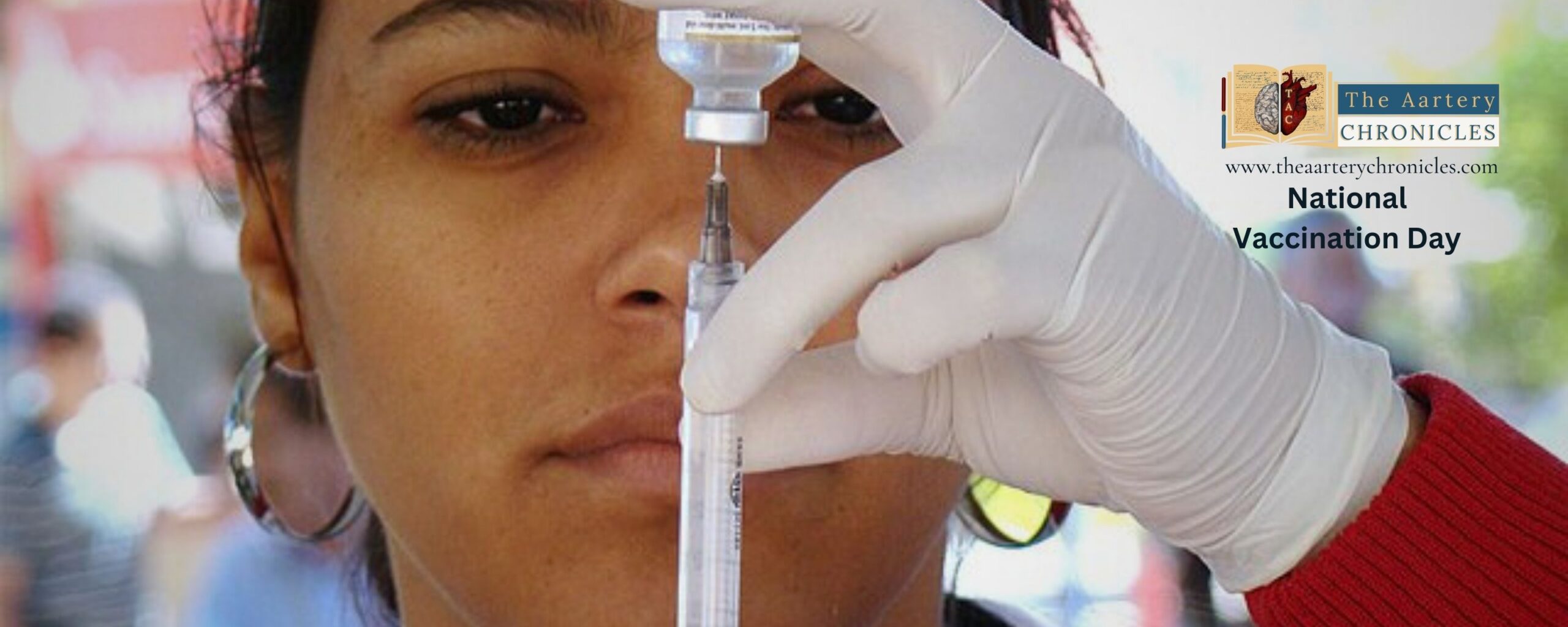
National Immunization Day: From Eradicating Polio to Battling COVID-19
“Vaccine is the best health investment money can buy.”
WHO
Introduction:
National Vaccination Day, also referred to as National Immunization Day, is commemorated on March 16th every year. In today’s global landscape, where the spectre of infectious diseases remains prevalent, National Immunization Day assumes a pivotal role. It not only highlights the critical significance of vaccinations but also advocates for widespread immunization as a means of safeguarding communities against potential health threats and promoting public health. [1]
In addition, this day commemorates a significant milestone in India’s history, symbolizing the nation’s triumph over the polio disease.
National Immunization Day stands as a significant annual observance, symbolizing both past victories and present challenges in the realm of public health. It commemorates the successful eradication of polio while concurrently serving as a poignant reminder of the ongoing struggle against infectious diseases such as COVID-19.
Vaccination has long been recognized as one of the most effective tools for preventing the spread of infectious diseases and safeguarding individuals and communities against potentially life-threatening illnesses.
Let’s delve into this article further to gain insight into the history, theme, and importance of National Vaccination Day.
The Significance of Immunization and Vaccines
Immunization signifies a remarkable achievement in global health and development, saving millions of lives every year. Vaccines mitigate the risk of contracting diseases by working with the body’s inherent defences to establish immunity.
The significance of vaccines cannot be overstated, as they play a crucial role in protecting individuals from various diseases by stimulating the immune system to produce antibodies, thus providing immunity against specific pathogens. By stimulating the body’s immune response, vaccines have been instrumental in reducing illness, saving lives, and preventing outbreaks of deadly diseases.
Vaccines not only protect individuals but also bolster community immunity, curtailing the transmission of diseases and shielding vulnerable populations. Overall, vaccines are a cornerstone of public health and a critical tool in combating antimicrobial resistance. [2]
“Vaccines don't just protect us; they protect everyone around us."
Jen Gunter
A Brief History of National Immunization Day
National Immunization Day (NID) in India has its roots in the global effort to eradicate polio. The primary goal of the programme was to ensure widespread vaccination coverage to eliminate polio in India.
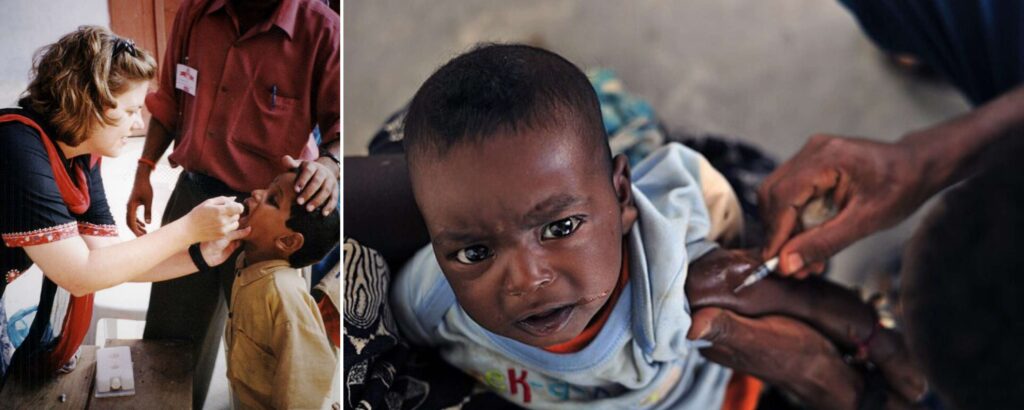
- In 1995, India officially launched the Pulse Polio Immunization program with the goal of eradicating polio from the country.
- On March 16, 1995, India administered its first dose of the oral polio vaccine, aligning with the World Health Organization’s (WHO) Global Polio Eradication Initiative, which commenced in 1988.
- The vaccination drive gained widespread recognition through a nationwide campaign known as ‘Do Boond Zindagi Ki’.
- Children between the ages of 0-5 years receive two drops of the oral vaccine at public health centers.
- The World Health Organization (WHO) reported that the last case of polio in India was documented in Howrah, West Bengal, in 2011, and WHO officially declared India a polio-free nation on March 27, 2014. [1, 3, 4]
The Theme of National Immunisation Day
As we look forward to National Vaccination Day 2024, the theme “Vaccines Work for All” has been announced for this year, emphasizing the universal benefits of immunization. This theme underscores the fact that vaccines offer protection against a wide range of diseases, regardless of age, gender, or socio-economic status. By safeguarding lives and communities against preventable illnesses, vaccines play a crucial role in promoting health equity and ensuring that everyone has access to life-saving immunization. This theme serves as a reminder of the inclusive nature of vaccination efforts and the collective responsibility to ensure that no one is left behind in the quest for better health outcomes. [5]
The National Immunization Schedule for Pregnant Women and Infants
In India, the national immunization schedule for pregnant women, infants, and children is managed by the Ministry of Health and Family Welfare.
For pregnant women
- Tetanus Toxoid (TT) Vaccine: Pregnant women receive TT vaccinations to protect themselves and their newborns against tetanus.
- TT-1 (Tetanus Toxoid): Administered early in pregnancy
- TT-2: Given 4 weeks afterTT-1
- TT Booster: A TT booster dose is recommended for women who have received two TT doses within the preceding three years.
For infants
- Bacillus Calmette-Guérin (BCG): The BCG vaccine is administered either at birth or as early as possible up to the age of one year to provide protection against tuberculosis.
- Hepatitis B Vaccine: The hepatitis B vaccine is typically given at birth or as soon as possible within the first 24 hours of birth to provide protection against hepatitis B.
- Oral Polio Vaccine (OPV)-0: The oral polio vaccine (OPV-0) is administered at birth or as early as possible within the initial 15 days to protect against polio.
- Oral Polio Vaccine (OPV)-1, 2, and 3: OPV doses 1, 2, and 3 are given at 6 weeks, 10 weeks, and 14 weeks, respectively, and can be administered up to the age of 5 years.
- Pentavalent Vaccine 1, 2, and 3: The first, second, and third doses of the pentavalent vaccine are administered at 6 weeks, 10 weeks, and 14 weeks, respectively, and can be given until the child reaches one year of age. The pentavalent vaccine is given to protect the child against five life-threatening diseases, namely Diphtheria, Tetanus, Pertussis (whooping cough), Hepatitis B, and HiB (Haemophilus influenzae type b).
- Rotavirus vaccine: The rotavirus vaccine is administered at 6 weeks, 10 weeks, and 14 weeks of age, respectively, to protect against rotavirus infection, a common cause of severe diarrhoea in infants.
- Inactivated Polio Vaccine (IPV): Two fractional doses of inactivated polio vaccine are given to children at 6 weeks and 14 weeks of age.
The IPV vaccine, or inactivated polio vaccine, is given to provide immunity against poliovirus. Unlike the oral polio vaccine (OPV), which contains live but weakened forms of the poliovirus, IPV contains inactivated (killed) poliovirus strains.
Measles/MR vaccine: The first dose of the Measles-Rubella vaccine is typically administered between 9 and 12 months of age, and it can continue to be administered up to the age of 5. The Measles-Rubella vaccine, is given to provide immunity against two viral diseases, namely measles and rubella (also known as German measles).
JE-1 (Japanese Encephalitis) vaccine: The first dose of the Japanese Encephalitis vaccine is given between 9 and 12 months of age to offer immunity against Japanese Encephalitis. Japanese encephalitis is a serious and potentially life-threatening viral infection of the brain that can lead to severe neurological complications and death.
- Vitamin A (1st dose): The first dose of Vitamin A is given at 9 months of age, concurrently with the MR vaccine, to mitigate the likelihood of Vitamin A deficiency. [6]
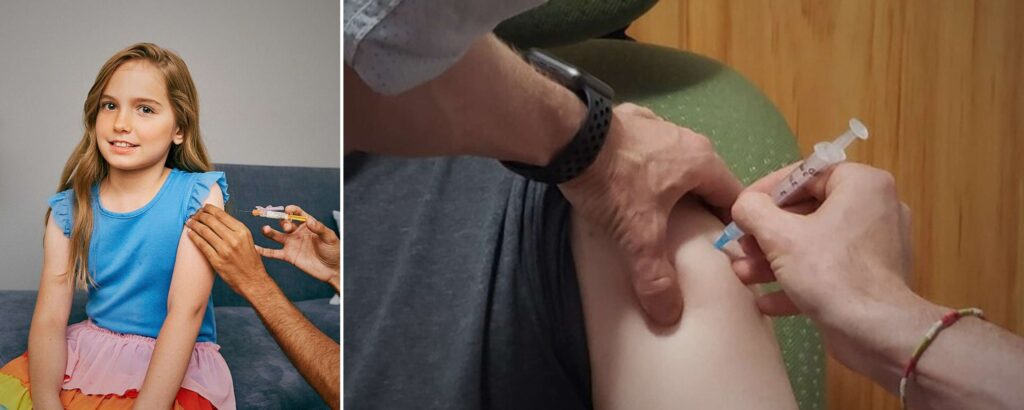
“It’s important for children to be vaccinated so that they have the opportunity to become adults.”
Brad McKay
Take Action to Eradicate Deadly Diseases
One of the most remarkable accomplishments of vaccination programs is the eradication of deadly diseases. Diseases such as smallpox have been eradicated globally through extensive vaccination efforts. Additionally, vaccines have led to a significant reduction in the prevalence of diseases such as polio, measles, and diphtheria, contributing to improved public health outcomes worldwide.
On National Vaccination Day, take the opportunity to ensure that you and your loved ones are up-to-date with vaccinations. Consult with healthcare providers to discuss vaccination schedules and any concerns you may have. By staying informed and vaccinated, you not only safeguard your own health but also play a role in promoting the well-being of your community.
Conclusion
National Vaccination Day serves as a reminder of the critical role that vaccination plays in safeguarding public health. Through vaccination, we can prevent diseases, save lives, and build healthier communities. Let us use this day to reaffirm our commitment to vaccination and work towards a future where everyone has access to life-saving vaccines.
- Pulse Polio Programme.pdf (mohfw.gov.in)
- Vaccines and immunization (who.int)
- pdf (mohfw.gov.in)
- Press Information Bureau (pib.gov.in)
- **DC Doda Reviews preparations of Upcoming Pulse Polio Day** *Planning and Coordination for National Immunization Day* | District Doda | India
- pdf (mohfw.gov.in)
- India draws lessons from polio eradication initiative | Gavi, the Vaccine Alliance

Author: Dr. Anjali Singh
- Medicine
- Nutrition And Diet








